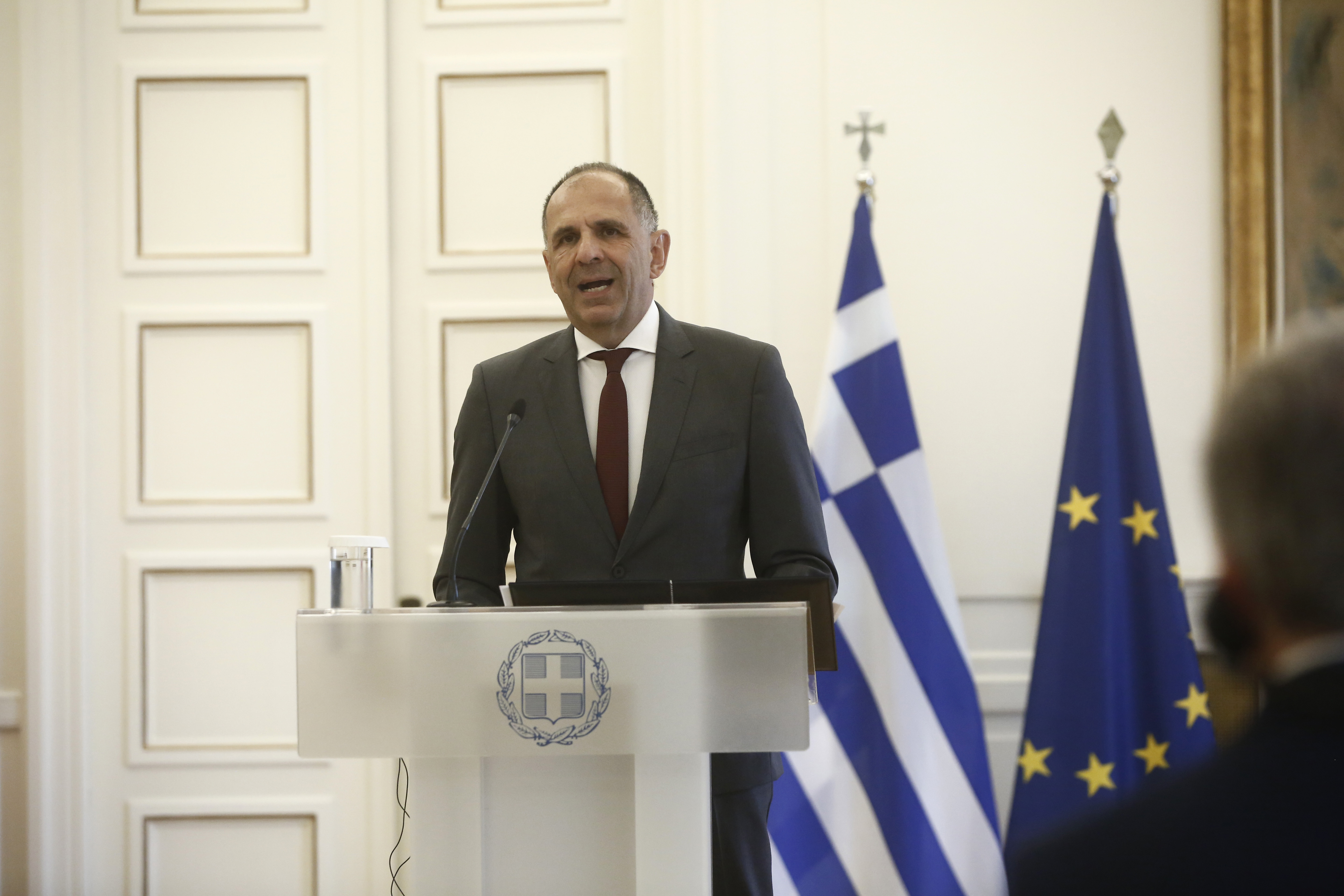Greek Foreign Minister Giorgos Gerapetritis on Tuesday called for clarity regarding Cyprus’ position on the Great Sea Interconnector, a day after Cypriot Finance Minister Makis Keravnos had accused Greek Energy Minister Stavros Papastavrou of “fake news” over the issue.
He was asked about Cyprus’ position during an interview with radio station Athens 9.84, and said that “it is something which should be clarified”.
“This is because, of course, the national benefits which are produced may be very important, but technical and economic viability is also a necessary condition with regard to European funding,” he said.
As such, he said, “it is not a factor which you can ignore”.
“It is important, despite the obvious commitment we have made to the project, that any objections or reservations which are expressed be clarified,” he said.
Keravnos’ “fake news” comment had come after Papastavrou had said the Cyprus minister “does not show” the studies which he claimed demonstrate the project is not sustainable.
The finance minister said the studies had been commissioned by Cyprus Energy Minister George Papanastasiou, that they were “properly delivered” to the Greek energy ministry, and that they had even been sent to Papastavrou’s predecessor Theodoros Skylakakis.
“We all know the studies and their findings,” he said, adding that “some people’s concerns are reasonable”, and that he himself has “many concerns”.
Papastavrou a week ago decried what he described as “constantly conflicting messages from the Cypriot side” over the matter of the interconnector.
The rift between the two governments is sourced from the Cyprus government’s initial agreement to make five annual payments of €25m to Admie before the interconnector is operational, but which it has thus far withheld.
The payments would in effect help finance the project and ensure that Admie, its 51 per cent shareholder and implementing body, will have a stable income while investing in the project before it turns a profit, but the Cyprus government has cited a lack of tangible progress on the project and differences in opinion regarding how the money should be sourced as its reasons behind not paying.
To this end, Papanastasiou had said last month that Cyprus will pay the first €25m instalment when the project is being “implemented in its entirety”, and that the construction of cables alone is “not enough” to meet this criterion.
The government had initially planned to utilise funds made available to it through the European Union’s emissions trading system (ETS) to make the payments to prevent the burden of the payments from falling on the taxpayer.
Admie had warned that this arrangement may violate the EU’s rules on state aid, and as such asked the Cyprus energy regulatory authority (Cera) to begin charging consumers instead.






Click here to change your cookie preferences